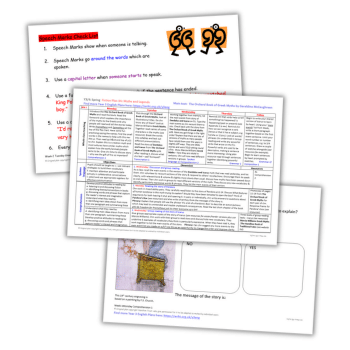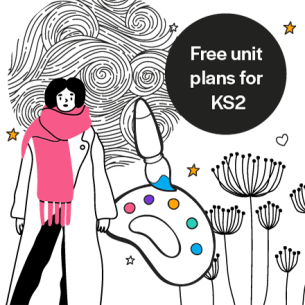This Greek myths KS2 planning download will save you lots of time and help pupils become familiar with a range of Greek myths.
Using the main text, The Orchard Book of Greek Myths by Geraldine McCaughrean, pupils will study:
- powerful verbs
- verb tenses
- use of first and third person
- paragraphs
- ways of showing dialogue
They will then draw story maps to learn a Greek myth off by heart, and to retell another myth in written form.
Objectives are set out covering:
- Spoken language
- Comprehension
- Transcription
- Grammar
- Composition
Greek myths KS2 download
This download contains:
- Planning document for teachers, outlining three weeks of content
- Resources needed to complete the sessions.
These resources include:
- Pandora’s Box worksheet
- Names from Greek myths worksheet
- The story of Icarus – long and short versions
- Powerful verbs worksheet
- Conjunctions, adverbs and prepositions worksheet
- Examples of words with -logy endings
- Objects from Greek mythology information sheet
- Extracts from Persephone and the Pomegranate Seeds
- Speech marks check list
First lesson
Introduce the The Orchard Book of Greek Myths and read the blurb. Read the foreword which explains the importance of the myths to the Greeks and why people still read and tell the stories today.
Write ‘Prometheus’ and ‘Epimetheus’ at the top of a flip chart. Have some fun practising saying the names – find the small words in the names to help with this me-the-us.
Read pages 9-11 to children. Explain this is a creation myth and most cultures have similar myths which explain how the earth/animals/people came to be. Give pupils time to discuss the story – why was the gift of fire so important?
Hamilton Trust is a UK charity working to support inspirational teaching and learning through its website and projects. Find more of its great resources at hamilton-trust.org.uk and follow on Twitter at @HamiltonTrust. Download our myths and legends KS2 Odyssey three-week plan.













